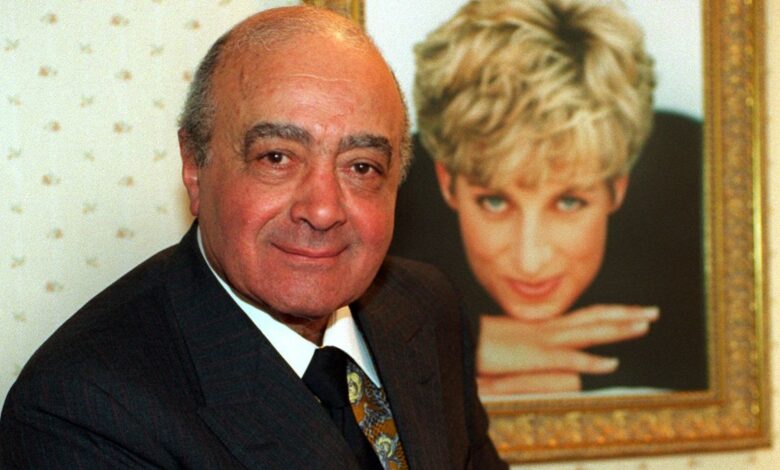
Ex-Harrods boss Mohamed Al Fayed was Royal obsessed and had strange connection to the Queen
Self-made millionaire, friend of Princess Diana and ex-owner of Harrods Mohamed Al Fayed was well known for his keen interest in the Royal Family and even stars in an episode of The Crown
Mohamed Al Fayed was a man so deeply involved with the Royal Family that an entire episode of Netflix hit The Crown’s fifth season is devoted to telling his story.
The self-made Egyptian businessman – who has today been accused of a series of sexual assaults on women at Harrods – had a deep personal bond with Princess Diana – but he also had a strange connection to another outcast member of the United Kingdom’s Royal Family. Mr Al Fayed was the proud owner of a French mansion once owned by Queen Elizabeth II’s uncle, the Duke of Windsor – and he even turned it into a museum of sorts to the British monarchy. Al Fayed died at the age of 94 in August last year.
“Villa Windsor” as Al Fayed came to call it, is a 14-room mansion on the outskirts of Paris. The incredible building was the home of King Edward VIII and his American divorcee wife Wallis Simpson from 1952 until 1986. When Ms Simpson died that year, Mr Al Fayed took out a 50-year lease on the property for the sum of 1million Francs per year. The lease also required him to spend 30million Francs in total on renovating the property, which had slowly begun to fall into a state of minor disrepair.
“It’s like a mausoleum,” Al Fayed told People Magazine in a 1990 interview, having spent somewhere in the region of £10.5million in total on sprucing up the villa. “It sometimes gives you the creeps—both of them having died here. But it’s still a happy place, a great fantasy which I love to live in.”
Mr Al Fayed even went the extra mile when it came to recruitment. So keen was the millionaire to maintain an authentic royal experience at the villa that he hired the Duke of Edinburgh’s ex-valet, Sydney Johnson, to oversee renovations at the property and curate a private collection of royal memorabilia to be stored at the site.



